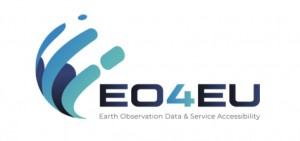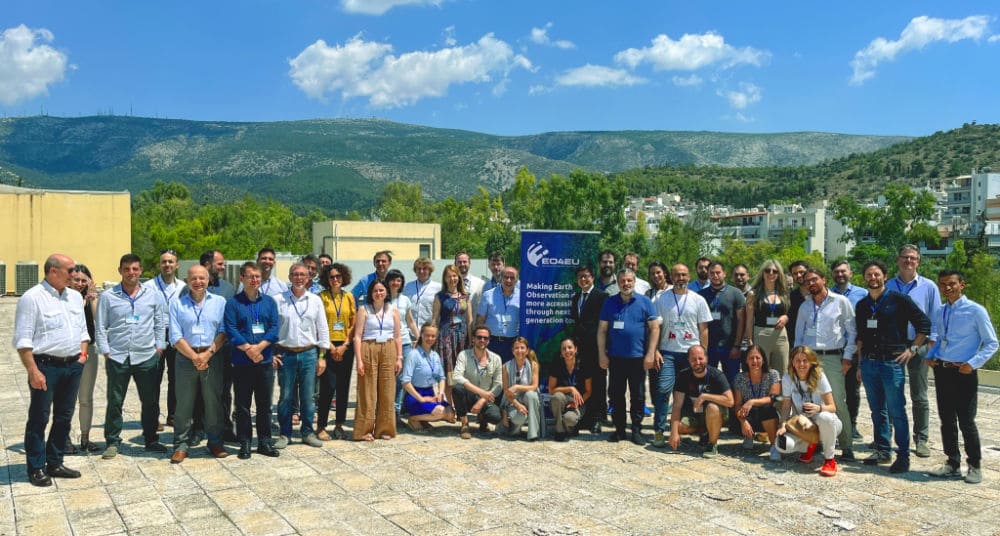Global climate and environmental data sources to be made more accessible to citizens towards 2025

At any given time, satellites trained towards the Earth regularly feed data on various aspects from daily applications such as pollution levels or weather, to less obvious ones such as archaeological, health or marine applications. However, most of this data is only easily found,retrieved, used, and understood by scientists and technical experts specialised in their field. Some barriers that hinder the optimal use of the available data are the large volumes of data commonly found in the EO domain which make processing EO data a challenge. Another aspect is the lack of interconnection between the main sources of data and user friendly access mechanisms which prevent the development of new solutions or across different scientific domains. Work on interpreting environmental observation data is crucial in assessing climate change towards meeting sustainability criteria and supporting the European Green Deal and the climate and ecological transition.

Earth data at our fingertips
The EO4EU Platform, which will be available at www.eo4eu.eu, will connect already existing major EO data sources such as DestinE, GEOSS, INSPIRE, Copernicus, Galileo, among others and offer several tools and services to help users find and access the data they are interested in, as well as to analyse and visualise this data. The platform will leverage machine learning to support handling of the characteristically-large volume of EO data as well as a combination of Cloud computing infrastructure and pre-exascale high-performance computing to manage processing workloads . Specific attention is also given to developing user-friendly interfaces for EO4EU allowing users to intuitively use EO data freely and easily, even with the use of extended reality.
EO4EU Coordinator, Professor Stathes Hadjiefthymiades said, “The hope is that with EO data more accessible to non-technical users such as citizens and policy makers, more people can be involved in solving today’s societal challenges which EO data helps address. There are also many business opportunities that can be spurred with more available EO data. We’ve already seen how better access to EO data can be beneficial – from mapping and location services, to pollen and allergen monitors or even real-time weather updates.”
Applications: environment, health, security and more!
To demonstrate the wide-ranging and relevant applications of the EO4EU Platform, EO4EU will be used to expand an allergy and airborne hazards forecasting service in the Nordics and Baltics, optimise a major shipping company’s freight travel time across different oceans, improve climate adaptability of food production in Italy, improve forest productivity by simulating water, energy and carbon fluxes in Austria, integrate rainfall datasets to assess soil susceptibility to water erosion across Europe, run better locust plague impact assessments and prediction in Yemen, and improve disaster and calamity prevention and response in Italy.
EO4EU is made up of 16 consortium partners from 11 countries. The consortium that will bring the platform and its initial use cases forward is led by the University of Athens and includes other universities such as Vilnius University and University of Latvia, environmental and research-supporting institutions such as European Centre for Medium-Range Weather Forecasts (ECMWF), HPC Centre CINECA, Finnish Meteorological Institute (FMI), Fondazione Centro Euro-Mediterraneo sui Cambiamenti Climatici (CMCC), Center for Security Studies (Kentro Meleton Asfaleias – KEMEA), Fraunhofer Institute for Transportation and Infrastructure Systems IVI, and SMEs and large companies such as Sistema Gmbh, Danaos Shipping Co. Ltd., eBOS Technologies Ltd., Trust-IT Srl, Engineering, Intelligence for Environment and Security Srl, and Meteorological and Environmental Earth Observation Srl (MEEO).
Get involved
The project is scheduled to run until May 2025, but even before then EO4EU will make pilot versions of its EO4EU platform available to early adopters. In fact, it will run an EO Innovation Awards contest to source the best and most creative use of the EO4EU Platform.
To be the first to be informed about the EO4EU developments, subscribe to the EO4EU community at www.eo4eu.eu.
You can also meet the project members in its first webinar, “Introducing EO4EU: Making Earth Observation data more accessible through next generation tools” on 22 July 2022, 10:00 CEST. Register here: https://www.eo4eu.eu/events/introducing-eo4eu.


